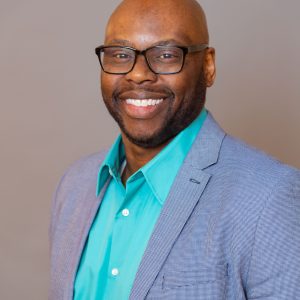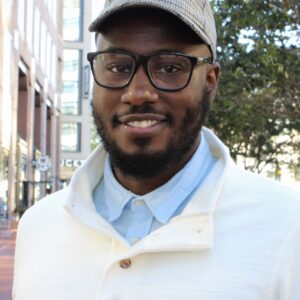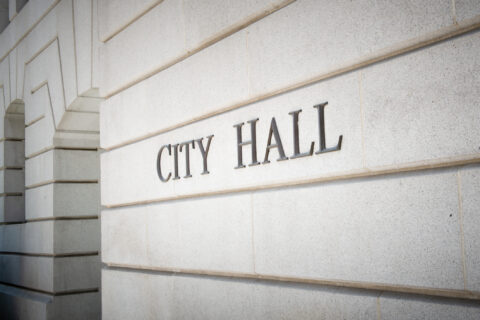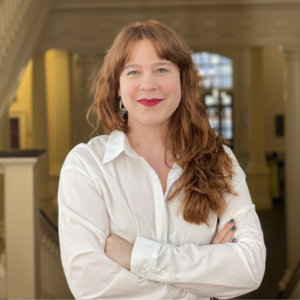Today, we highlight and uplift the one-year anniversary of Second Chance Awareness Month being officially recognized by the White House. This recognition, along with the President’s Community Violence Intervention Collaborative, has spurred interest and action, at the municipal level, to focus resources on services for second chancers (formerly incarcerated people). City leaders are acknowledging that these investments produce a positive return. The increase in effective transition services produces a list of benefits; reduces the likelihood of recidivism, decreases taxpayer dollars spent on incarceration, increases public safety and municipal tax bases while strengthening communities. For example, Baltimore is thinking across systems and offices to address re-entry and recidivism while individuals are still incarcerated through the federally funded B’More Reconnects program.
With increased attention comes higher expectations for results. In order to make this movement sustainable, we as second chancers must push for leadership roles in order to advocate for continued support for our peers. While data isn’t readily available at the city administration level, the Society of Human Resource Management conducted a survey that found 66% of human resource professionals reported hiring employees with a criminal record. Similarly, jurisdictions are recognizing the value of lived experience as a form of expertise and hiring those of us best suited to help implement practices that improve the experiences of people returning home from incarceration. Some examples of these municipal leaders include:
- Steve Adami, Director Reentry Division and Victoria Westbrook, Reentry Policy Planner – Reentry Dept of SF Adult Probation Office
- Pam Superville – Ag. Deputy Director, Philadelphia Office of Reentry Partnerships
- Demetrus Coonrod – Chattanooga, TN – Elected to her second term as council member in 2021, 2022 representative on NLC’s Public Safety & Crime Prevention Committee
- Lamont Carey – Director, District of Columbia Mayors Office on Returning Citizen Affairs
Additionally, many cities hire consultants or partner with reentry organizations that include returning citizens at the helm.
At this same time last year, I wrote my initial blog for the National League of Cities (NLC). Not only was it the first on the subject of reentry, but also my introductory post as the first Macarthur Safety & Justice Challenge Fellow, a position in NLC’s Institute for Youth, Education, and Families (IYEF) that was created for someone with lived experience in the criminal justice system. Now, as a full-time staffer, it is an honor to work here and have the privilege to be in the room with city leaders from across the country. With that privilege, however, comes the responsibility of representing the voice of people who were formerly incarcerated. It is incumbent upon those of us with a seat at the table to pull up more chairs, start new programs and create new collaborative environments to reduce barriers and create pathways to success for citizens returning to their communities.
NLC, along with many cities across the country, has been intentional in its efforts to uplift the voices of those impacted by institutional systems. As a continuance of those efforts, we are proud to have our first Justice Initiatives intern, Mustafah Muhammad, through our partnership with the Georgetown Pivot program for returning citizens:
“I am honored to be here at NLC during Second Chance Month, and to be part of such a great journey to spark the flame that our city leaders need to better support residents with re-entry services- an urgent matter in communities.
After almost 10 years in Federal Prison, it took discipline to really focus on what is considered a successful re-entry back into society. I realized that, though it seemed impossible, chasing success in the right way was all that I ever wanted to do.
I feel somewhat like a newborn child because after 10 years away, everything seems new – like I’m taking my first step or seeing something for the first time. Not to mention, I feel like I need help with almost everything, just like an infant. Very few understand what it is like to have to start life over after so many years behind bars; Or what it’s like to lose most of their youth to incarceration. But, if explained using this analogy of a newborn, it gives people a glimpse of what it is like.
This month represents more than just a second chance, it represents men and women who have paid their debt to society, and now want to be the change within our communities. For me, a second chance represents redemption for every time I could not see my daughter before bedtime, every time my mother needed me and I was not there to help, and when my father was dying from COVID-19 and I was not able to call to comfort my grieving family.
This month also represents the countless hours I spent in the law library fighting for some relief on my case. But, most of all it represents the date- February 15th, 2021- when the Judge granted my Compassionate Release Motion! Upon my release, I was determined not to return to the streets. I had to constantly remind myself that my mistakes don’t define who I am, but rather contribute to the greatness of who I am striving to become.
Recently, right before I was to turn 37, I heard of a program at Georgetown University called PIVOT that instills and provides the skills needed for those returning home to make progressive moves in life and in society. I applied for the program, and out of hundreds of people, I was one of 14 very special fellows to be chosen for the program.
Now at NLC – I am representing my peers in PIVOT and the 600,000 plus Black and Brown people returning home every single year in our municipalities across the country. Along with my teammates, I will engage our city leaders to collaborate, strategize, and use creative measures to move our communities, cities, and our country in a more fruitful and productive direction, with all cultural backgrounds and experiences together. “
People like Mustafah and myself are not unique. Over one-third of Americans have a criminal record and with that comes a lifetime of consequences. As city leaders look to improve public safety programs, second chancers are well equipped to offer alternative solutions developed from unique firsthand experiences and are eager to collaborate in and with our communities.
In this spirit of collaboration and as a part of the Institute for Youth, Education and Families’ ongoing work with the John D. and Catherine T. MacArthur Foundation’s Safety and Justice Challenge, The Municipal Reentry Leaders Network (MRLN) launches on Thursday, April 21, 2022, at 1:00 PM ET. The MRLN is a unique collaborative that calls upon city leaders, higher education institutions, and community-based organizations to commit to adopting and supporting strategies to improve services for those transitioning from incarceration back to their communities based on the recommendations of the recently released brief: The Challenge and Promise of Reentry.
Strengthen Reentry Programs
If you are a local leader looking to start or strengthen your reentry program, the MRLN is a perfect opportunity for you to learn about promising reentry approaches, align reentry initiatives with other public safety programs, connect regularly with fellow reentry program leaders and more. We invite city-led reentry directors, probation officers managing local reentry, or higher education reentry directors to join the network.
If you have questions or would like more information, email the team at: justiceinitiatves@nlc.org









